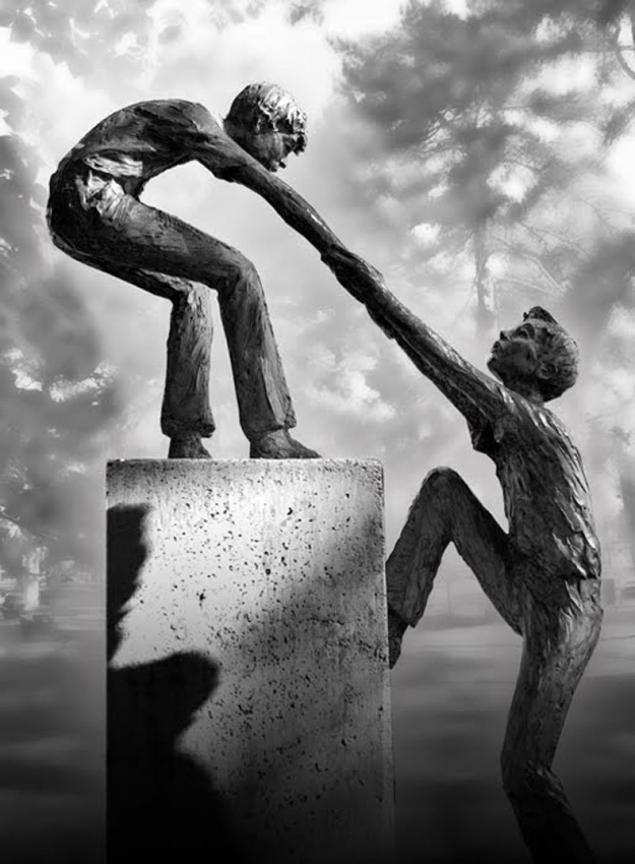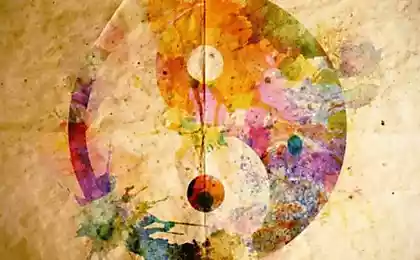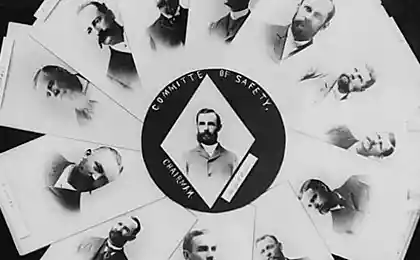495
Attitude to newcomers: Inexperience without humiliation
With you is so unbearably annoying newbies — people who are inexperienced in some matter?
And you are faced with a strange irritation when you were clumsy?
I want to write about the attitude to inexperience — I think this topic is very important. This attitude affects how easy it is in our midst to grow, to learn, to start something new. I in my practice I know how hard it is for people who are afraid to be in the role of inexperienced.

Because of this fear many of us life is built to never get out of the comfort zone — doing only what is good.
I have the impression that in our society, the new kid is hard, and even sadistic attitude. So I want to describe the psychological underpinnings of this relationship, as well as to give psychological advice — what to do if you face this problem.
First I want to articulate what I mean by inexperience. A generalized description of the development of human skills, is not trained in any activity. I'm going to write about the inexperience in the broadest sense — in different types of activities: in profession, in family life, in communion, Yes, even in the car driving and computer use.
Inept person can be a lot of trouble for others. He is often mistaken, often is itself ridiculous. It is quite natural that in response to these problemsfromthe surrounding irritation. But the strength, direction, and ways of expression of this irritation can be different.
This can be a mild irritation, maybe anger and hatred. You can Express annoyance without affecting personality. And it is possible to get irritated sadistically — to spit and stomp on it. This irritation can be different goals:
What all of these nuances depend? I think those attitudes and beliefs that we have about inexperience — from what we see and how we understand.
Installation is mothballed evaluation of some object or event — positive or negative (one definition). Often our emotions are relative — they depend not only on object properties, but from how we evaluate them from the unit.
When we see someone's ineptitude, trigger those unconscious installation:
It turns out, the contempt for the inexperience — the consequence of errors of thinking. How to get out of this cognitive trap? It is possible to rethink this relationship with the position of the adult. Indeed, the discriminatory treatment of the inexperienced often comes from the parental attitude from the attitude "I'm OK you're not OK". It can manifest itself in sadism, but it is a pathological variant. Can manifest care, the familiarity and the familiarity, in condescension, in mentoring and moralizing, but also in ridicule.
What is the adult position in my understanding? Understanding and non-judgment. This man is learning now, and I also once studied. I don't have to take care of it, I have no reason to despise him — he's OK. If you have the ability and desire to help-if not — I will not.
When you start something new, it is important to realize the negative attitude to inexperience — it can spread to yourself. I perceive myself as inexperienced, and inexperience for me is bad. So I have myself for it to despise. It is very painful to catch these reactions from others if, deep down, we agree with the arrogant attitude. And to learn and develop is also very difficult — may not be enough motivation.
It is difficult to challenge the negative attitude of others, subjecting it to criticism, if we do share it. In order to challenge it, you need to start with ourselves — to recognize bullying in themselves and cease to agree with her. If we reexamine their beliefs about inexperience, we will lessen our dependence on the marks of others.
For example, if someone applies to you down, and you hate it, you can give feedback. To talk about their emotions in connection with such respect and normalize the attitude to inexperience — to remind you that everyone learns something and sometimes inept. If people disagree with you, but you still care about his opinion, then you yourself not completely convinced. In reviewing such a tough attitude can help a psychologist. As a rule, sustained the rejection of inexperience is associated with injury early development unlived canned shame for his non-compliance significant others.
By the way, even in my post so it turns out that we are talking only about the negative sides of inexperience. But it is possible to find many benefits and advantages:
© Danila Gulyaev
P. S. And remember, only by changing their consumption — together we change the world! ©
Source: danilling.livejournal.com/47585.html
And you are faced with a strange irritation when you were clumsy?
I want to write about the attitude to inexperience — I think this topic is very important. This attitude affects how easy it is in our midst to grow, to learn, to start something new. I in my practice I know how hard it is for people who are afraid to be in the role of inexperienced.

Because of this fear many of us life is built to never get out of the comfort zone — doing only what is good.
I have the impression that in our society, the new kid is hard, and even sadistic attitude. So I want to describe the psychological underpinnings of this relationship, as well as to give psychological advice — what to do if you face this problem.
First I want to articulate what I mean by inexperience. A generalized description of the development of human skills, is not trained in any activity. I'm going to write about the inexperience in the broadest sense — in different types of activities: in profession, in family life, in communion, Yes, even in the car driving and computer use.
Inept person can be a lot of trouble for others. He is often mistaken, often is itself ridiculous. It is quite natural that in response to these problemsfromthe surrounding irritation. But the strength, direction, and ways of expression of this irritation can be different.
This can be a mild irritation, maybe anger and hatred. You can Express annoyance without affecting personality. And it is possible to get irritated sadistically — to spit and stomp on it. This irritation can be different goals:
- either help the man, so he soon learned;
- either to punish man for his ineptitude;
- or increase his own status at the expense of the newcomer.
What all of these nuances depend? I think those attitudes and beliefs that we have about inexperience — from what we see and how we understand.
Installation is mothballed evaluation of some object or event — positive or negative (one definition). Often our emotions are relative — they depend not only on object properties, but from how we evaluate them from the unit.
When we see someone's ineptitude, trigger those unconscious installation:
- If we have the belief that inexperience is a perfectly natural part of learning a new thing, then we classify it as acceptable behavior and not condemn the person. Can we be angry at the situation, but to understand that there is no reason to blame these troubles on the person — he is not a magician, and just learning.
- If we have the belief that inexperience is an indicator of insignificance, low status, something to be ashamed of, in response to unskillful behavior we come to feel rage or contempt. And these emotions directed at the person, not the situation. The inability is evaluated not as a temporary factor, but as a property of the individual. In this regard, we commit an error of attribution (determining causes) we erroneously attributed to the complexity of the situation personal qualities of the person. It is very hard sometimes to understand this bias, if it merges with the unspoken norms of society.
It turns out, the contempt for the inexperience — the consequence of errors of thinking. How to get out of this cognitive trap? It is possible to rethink this relationship with the position of the adult. Indeed, the discriminatory treatment of the inexperienced often comes from the parental attitude from the attitude "I'm OK you're not OK". It can manifest itself in sadism, but it is a pathological variant. Can manifest care, the familiarity and the familiarity, in condescension, in mentoring and moralizing, but also in ridicule.
What is the adult position in my understanding? Understanding and non-judgment. This man is learning now, and I also once studied. I don't have to take care of it, I have no reason to despise him — he's OK. If you have the ability and desire to help-if not — I will not.
When you start something new, it is important to realize the negative attitude to inexperience — it can spread to yourself. I perceive myself as inexperienced, and inexperience for me is bad. So I have myself for it to despise. It is very painful to catch these reactions from others if, deep down, we agree with the arrogant attitude. And to learn and develop is also very difficult — may not be enough motivation.
It is difficult to challenge the negative attitude of others, subjecting it to criticism, if we do share it. In order to challenge it, you need to start with ourselves — to recognize bullying in themselves and cease to agree with her. If we reexamine their beliefs about inexperience, we will lessen our dependence on the marks of others.
For example, if someone applies to you down, and you hate it, you can give feedback. To talk about their emotions in connection with such respect and normalize the attitude to inexperience — to remind you that everyone learns something and sometimes inept. If people disagree with you, but you still care about his opinion, then you yourself not completely convinced. In reviewing such a tough attitude can help a psychologist. As a rule, sustained the rejection of inexperience is associated with injury early development unlived canned shame for his non-compliance significant others.
By the way, even in my post so it turns out that we are talking only about the negative sides of inexperience. But it is possible to find many benefits and advantages:
- first, inexperience is the flexibility of perception, freedom from narrow-mindedness, lack of predeformation.
- second, training, formation of inexperienced to experienced is a fascinating process.
© Danila Gulyaev
P. S. And remember, only by changing their consumption — together we change the world! ©
Source: danilling.livejournal.com/47585.html























